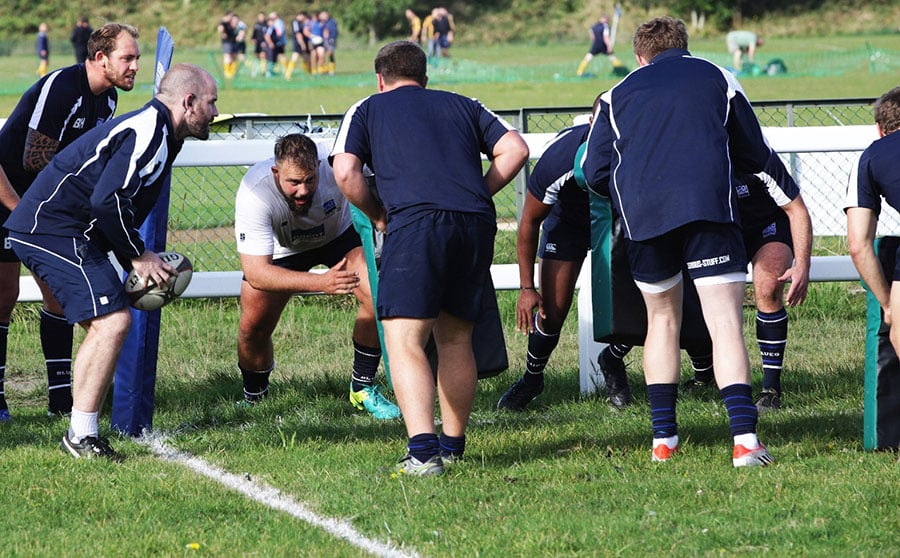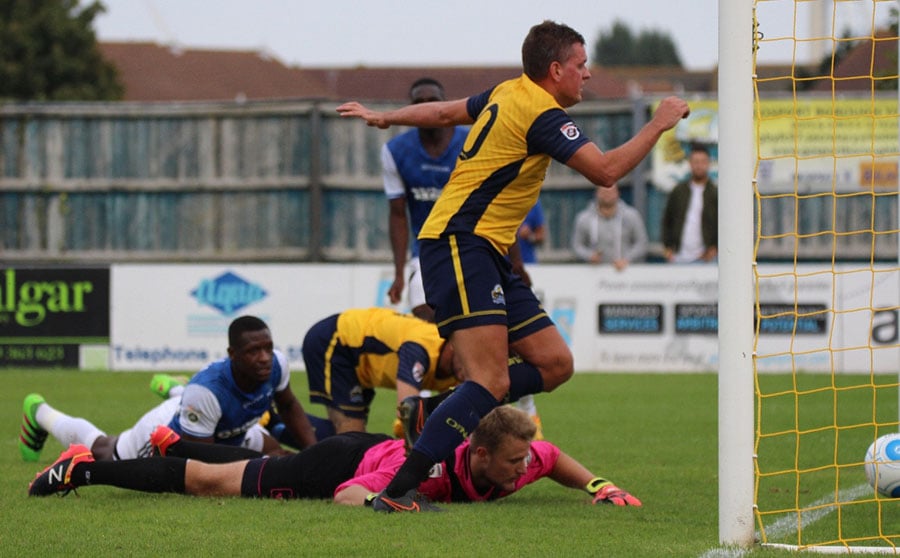Every team needs leadership. In difficult times players are left searching out the leaders in their team, but not everyone can pick up to the baton and lead a team away from a testing period.
It takes a special range of characteristics to excel as a sports leader. If you want to take on the mantle at your club, make sure you tick all the boxes below.
What's your role?
Depending on your role in the team your scope for leadership can change, and the series of pointers given below will be realised in slightly different ways.
Coaches can use the training ground and pre-and-post match team talks to display their leadership, but once the players are out on the field, it's generally down the captain. Captains are responsible for taking what their coach does off the field and implementing it on match day.
Coaches and captains are the obviously the first place to look for leadership, but they aren't the only ones who can take the bull by the horns on-or-off the field. Leadership can come from any team member on the pitch. Develop the right skills, and you could be the one delivering a killer injection of leadership to lift your team from potential defeat to dramatic victory.
Bare in mind your individual role within the team and how you might use the pointers given here to display true leadership.
1. Set an example
As a leader and authority figure, your fellow team members are likely to follow you down any behavioural path you choose. For the good of the team then, you need to be heading down the right pathway.

If you're seen with your head down, ranting and raving at players of officials, or generally conducting yourself in a negative manner – then your players will see no reason why they can't behave in exactly the same manner. The best leaders are the hardest workers on the pitch and the most respectful of their sport.
The same goes for training days and off the field commitments. Turning up late or having a less than enthusiastic attitude to training is just giving the rest of your team a reason to take their eye of the ball. Set a good example, and your team with feed off your enthusiasm and positivity to give you the best chance of achieving your goals.
Who is Pitchero?
We're the number one online solution for sports clubs. Visit our club website today to see why thousands of clubs trust Pitchero to help them grow and manage their sports club.
2. Awareness
As the leader of a team, awareness is key. There's no absolute method to leadership, and your approach to certain scenarios should be heavily influenced by external factors.
Awareness comes through time spent building relationships with your team mates, peers and players. Learn how they react to certain styles and tones. If you're on the end of a serious defeat, do they react better to a few harshly spoken words, or do they need an arm round their shoulder to help them lick their wounds?
It works on an individual basis too. Certain players react differently to different kinds of leadership. A passionate, rousing team talk may be enough to gee most players up before a big game, but others may just need a few softer motivational cues in their ear to get them in the zone or back on track.
In the heat of the moment it's easy to lose sight of your awareness of the situation, leading to you taking the wrong tone with team mates. Develop it by drawing on what you know about your team, individual players, the match or training scenario and previous experiences in similar situations.
3. Passion
Sport is intrinsically passionate. You feel the same set of emotions out on the pitch every weekend: euphoria from victory and disappointment in defeat. As a leader, you have to embody the positive side of those emotions (commitment, dedication and passion) to drive your team towards their goals.

It's not just passion towards victory you need to display as a leader. Caring for your team mates and your sport from a wider perspective are both ways you can show passion. It's not all about fist pumping and over-exuberant celebrations; passion can be about showing compassion for your team mates or respecting the opposition.
4. Enthusiasm
A similar quality in many ways to passion, enthusiasm is an important characteristic for a leader and one that can displayed in a number of ways.
On the pitch, enthusiasm is being the first to every ball, offering encouragement to your fellow players, or geeing up your team when they're looking down and out. But encouragement also stretches to your day-to-day behaviour as a sports leader, and can often be more valuable in long run.
Show enthusiasm for your game as an individual and towards the sport you love, and expect others to follow. Be the most enthusiastic in training; be enthused to new ideas; be supportive of team bonding activities; strive to be the best out on the pitch every weekend.
Enthusiasm is infectious. Injecting some into everything you do when representing your club can lead to an increase in dedication and commitment from everyone involved in your team.
5. Ability
Leaders, and in this case particularly coaches, live and die by their decision making. As the creator and implementor of a strategy off the field, or key figure in decision making on it, you need to have the knowledge and ability to stand by the strength of your convictions.
Leaders are often elevated into their position because of their ability (particularly team captains). Without that ability, your authority can become undermined. Strive to improve your skills, and not will it leave you in a better position to lead, it'll also set an example to others to improve their game.
6. Communicate
Communication is a vital area in team sport. And if any member of the team needs to nail it down, it's the leaders of the team. At the very core of great leadership is inspiring others towards a series of goals. To get those goals across to team members, you need to be able to communicate them effectively.

Make it clear to your players what you want to achieve and how you intend them to contribute to achieving it. Clear, concise communication can really boost your success rate as a leader.
Again, awareness is an important factor that ties in with communication. You know the players that you lead better than anyone, so learn to take the right communicative approach for each of them.
7. Motivational skills
As we've mentioned before, your position as a sports leader means in times of trouble, heads will start to turn towards you. In response to that, you first have to show the stomach for a fight yourself, before turning into Mr. Motivatior to turn that sinking ship around.
Honing your motivational skills should be a top priority as you look to become a better leader. Not only can it squeeze out those little margins between winning and losing, but it challenges players to be better everyday.
Good leadership is about infusing that challenge in the minds of your players. Motivate them to be better everyday, and watch your team grow as a result.
8. Will to win
One final common theme runs through the finest sports leaders – an insatiable will to win. Good leaders are the ones that win every 50/50, bring their absolute best when the team needs it, pushes their team mates on and never gives an inch to the opposition.

Bringing energy to everything they do as they hunt out victory, leaders are winners as they put the required time and effort into what needs to be done to win. As long as these ruthless character traits don't' spill over into aggression or the use of unethical methods of victory, a complete and utter will to win should be high on the list of must-haves for sports leadership.
9. Visionary
They say that the best leaders lead from behind their men. Especially relevant to leadership in coaching, your job is plan out that vision in your own head before imprinting it into the minds of your team.
Many of the characteristics required to be a successful sports leader interlock with one another. Whenever you call upon them, do so as another step on the ladder to your over arching vision. The start of a leadership journey, use it as a constant source of motivation.
To get there though, you'll need to drop in a number of the other characteristics discussed above. Your vision requires the ability to know how to get there, communication to let other know how they will contribute to success, and motivation and enthusiasm to share your vision and win the support of others.
Without knowing where your end game is, your capacity to lead is seriously diminished. Outline a series of goals for you and your team, and use everything else in your leadership armoury to steer them towards it.
Got what it takes? If this sounds like you, then raise your hand and take on a leadership role at your club. For more advice on how to get the best out of your team, take a look at our guide to coaching styles.
Be the best coach you can be in 2017 - Free Ebook
Crammed full of coaching advice on everything from motivating your team to preparation, Pitchero's Sports Coach Bible '17 Ebook can help you improve your coaching skills and own it out on the training pitch this weekend.

